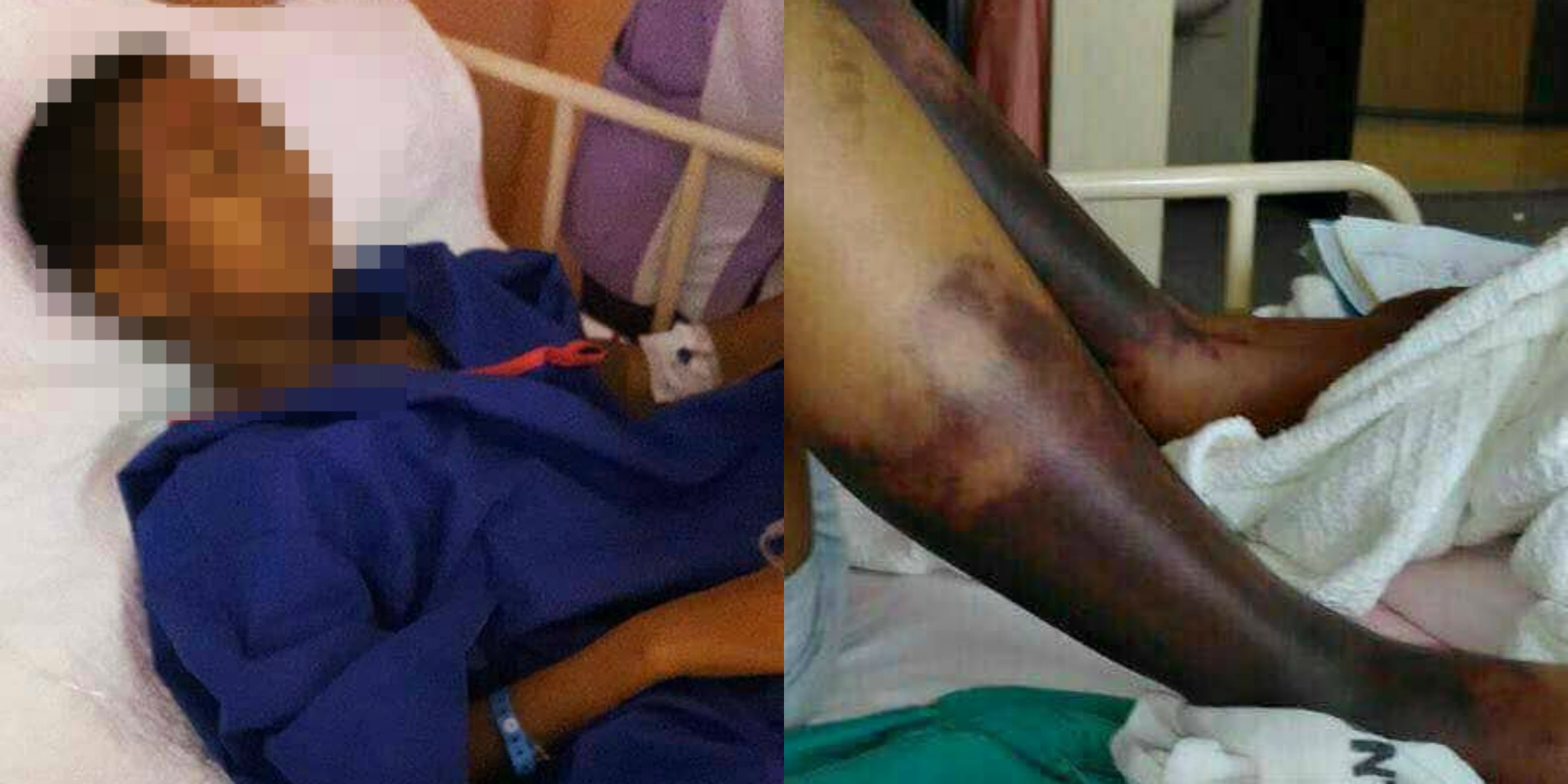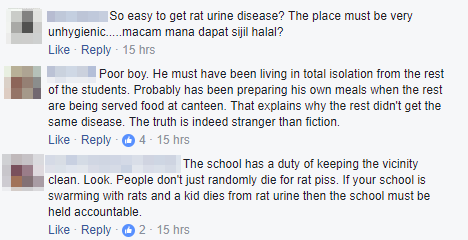"Don't Try To Spin It" - Thaqif's Mum Dismisses Report That He Died Of Rat Urine Disease
The authorities initially believed that the 11-year-old boy died from beatings by the tahfiz school's assistant warden.
The tragic death of a young boy in the recent tahfiz school beating case was due to leptospirosis, not from injuries sustained from alleged beatings by an assistant warden
Mohamad Thaqif Amin Mohd Gaddafi received treatment at Hospital Sultanah Aminah (HSI) before he passed away on 26 April.
Image via Oh! Media/Facebook"Results of the postmortem carried out showed that the tahfiz pupil died due to illness, and not trauma or injury as what was claimed in viral posts.
"The boy died of leptospirosis, complicated by skin necrosis and a micro blood congealing condition, known as microthrombi, which affected his blood vessels," said Health Ministry director-general Datuk Dr Noor Hisham Abdullah in a statement, as reported by the New Straits Times (NST) yesterday, 10 July.
Dr Noor Hisham said that the findings are from the postmortem conducted on the same day Mohamad Thaqif Amin Mohd Gaddafi died, at 6pm, and further investigations by the Health Ministry's special committee.
He said that the conditions of the disease led to a change in skin color on the boy's arms and legs and eventually, organ failure.
Leptospirosis is a form of bacterial disease that affects both humans and animals. It is caused by a strain of bacteria called leptospira.
According to the Centres for Disease Control and Prevention (CDC), leptospirosis can often be mistaken for other diseases due to its wide range of symptoms. Also, in some cases there may be no symptoms at all.
If left untreated, this bacterial disease that's also known as the 'rat urine disease', can cause kidney damage, meningitis (inflammation of the membrane around the brain and spinal cord), liver failure, respiratory distress and death. Leptospirosis is usually spread by contact with water or soil contaminated with urine of infected animals and the most common animal that spreads this disease are rodents.
Dr Noor Hisham said that the tissue and blood samples from Thaqif were taken and sent to the Institute for Medical Research (IMR) and to the Chemistry Department for analysis.
"Following the incident, a Special Investigation Committee was set up to probe the case. The committee comprised forensic consultant specialists who are vastly skilled and experienced in handling complicated cases," he said in the statement.
Responding to the latest revelation on the case, Thaqif's mother has dismissed the cause of death, asking why the disease wasn't detected earlier
"Logically speaking, why was there a need to amputate his legs if it was leptospirosis? Also, wouldn’t it have been detected earlier if it was indeed leptospirosis?
"I'm a teacher; don’t try to spin it. I’m disappointed. When Thaqif was first hospitalised, the doctors could not detect anything, and now all of a sudden it’s leptospirosis. It doesn't make sense. I can't accept it," said 40-year-old Felda Wani Ahmad, when speaking to Free Malaysia Today (FMT) on 10 July.
Felda Wani also spoke to The Star, revealing that she only found out about the cause of death when a reporter called her about it, saying that the Health Ministry did not inform her about the postmortem results.
"The hospital had taken a sample from my son’s legs while he was still alive and it took them two months to find out the cause," she said, adding that she will be seeking legal advice on the matter, as reported by The Star today, 11 July.
Following the latest updates on the case, quite a number of netizens have raised questions on the cleanliness of the tahfiz school


